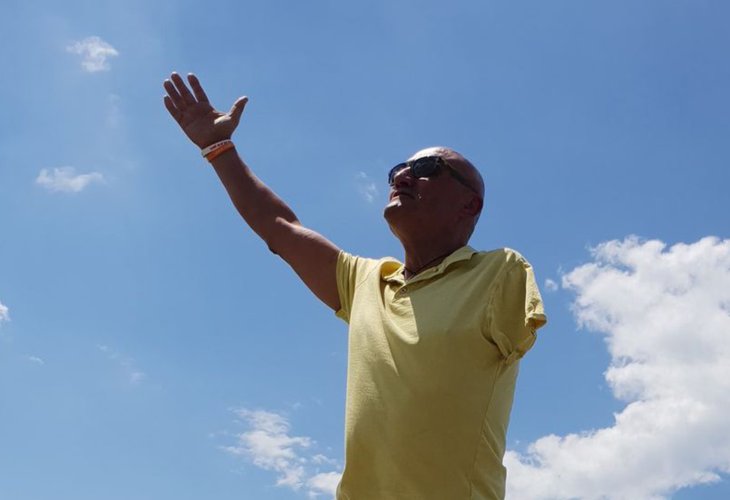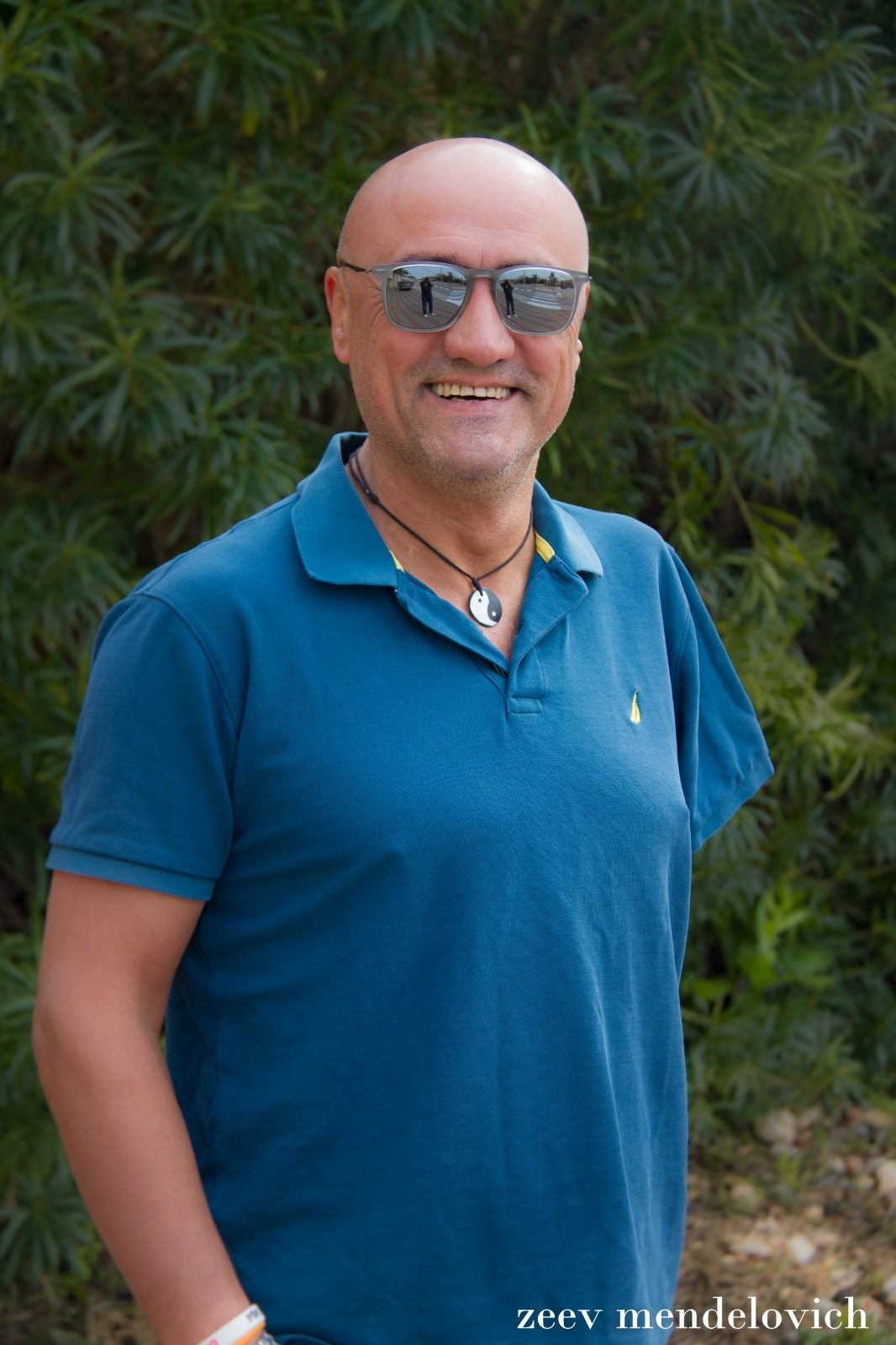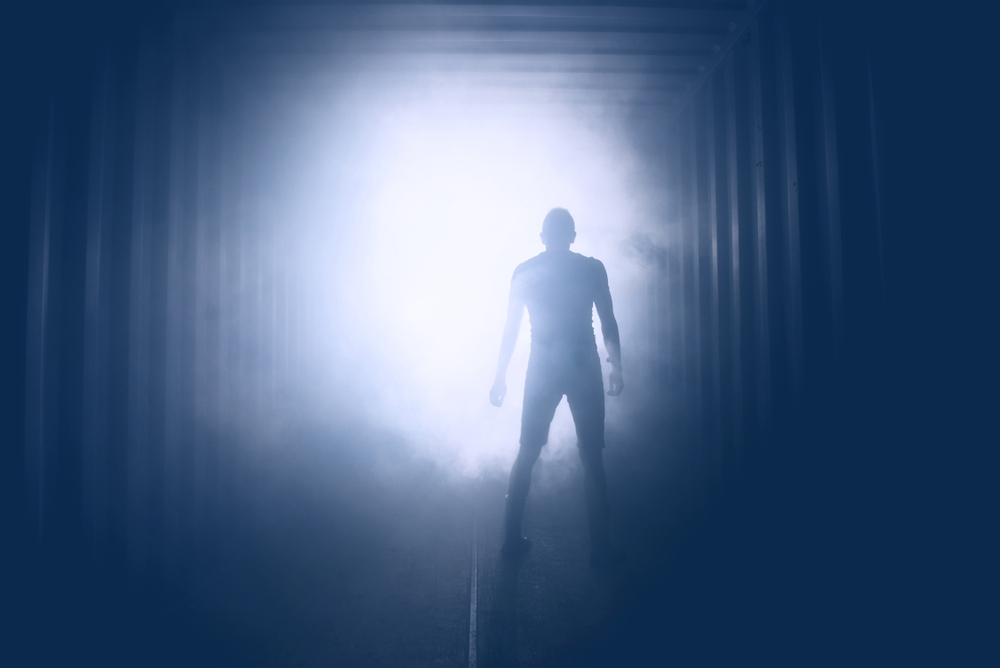"Doctors Fought for My Life, but I Was in the Heavenly Court"
Elchanan Gavrieli is an amputee after a severe car accident, but he doesn't let his disability control him. He manages his family firmly, engages in extreme sports, and lectures all over the country. "Hashem didn't leave me alive by chance," he claims, as he reveals what happened while he experienced clinical death.
 Elchanan Gavrieli
Elchanan Gavrieli"Even if you are missing an arm and a leg, you can continue with life; it all depends on your will," says Elchanan Gavrieli, an amputee. "Though I move independently, driving isn't easy for me," he says, "and yet I travel across the country because it's important to me to tell my personal story, and more importantly, to convey the message behind it."
It's not just that the subject is so close to his heart. "Until ten years ago, I was a regular, independent, and very active person without any limitations," he explains. "I even felt internally that I was capable of anything and didn't need anyone's help for anything in the world. Then, in one day, I received the lesson of my life. After a severe car accident, I went from a person at the peak of ability, capability, and self-confidence to being severely disabled in a moment."
Elchanan carefully chooses his words. "Words can't describe how disruptive the lesson was," he says finally. "I lost my independence, which is the most important thing a person has. The loss was not just hard, but unbearable. Those who have not experienced it will never understand. There were many questions too – 'Why did Hashem choose to keep me alive in this way – without an arm and leg?' and generally – 'How can one live life this way? It seems impossible.' But at the same time, I began to understand that if I was left in this world, there was probably a reason the Creator kept me here, and if so, then I must search for that reason, and the duty to find it rests on me. So from dealing with pain and wonder, I began to understand my life's purpose."
 Elchanan Gavrieli
Elchanan Gavrieli Life Changes
Before the accident, Elchanan worked as a dental technician, a profession he pursued for 32 years. "I was one step before becoming a master," he says. "I managed an independent business and lived life as if it was obvious, like any regular person. With good married life, beloved children, and a nice home to return to. I had all the routine things most of us have. Like many, I never stopped to think about people whose lives aren't like this, who have limitations and can't live like us."
Elchanan pauses his story to refer to those people by numbers. "People with disabilities receive services from the state through the Ministry of Education until age 21, as they are considered students. From age 55, they enter a category intended for those aged 55 and above with disabilities. But between ages 21 and 55, there is no formal body that looks after them, and this is a large core of the population. This is why it's toughest at these ages, and it can be seen that primarily at this age, people fall into depression and suffer from loneliness, with hard feelings of being a burden on society and worthless. Two years after the accident, I started becoming very active in promoting the rights of people with disabilities, both independently and through organizations like 'Accessible Community' – a national program that promotes rights and awareness in the community. Mainly, I see a mission in giving lectures where I explain to people what individuals with disabilities experience and how they should be treated."
Elchanan emphasizes that he has no complaints towards anyone, as he himself never truly gave thought to people with disabilities. "I remember when I was little, seeing a child in a wheelchair, I asked my mom curiously, 'What does that child have?' Mom replied in a whisper, 'Shh.. it's not nice.' At that moment, I learned that when I see someone with a disability or handicap, I should immediately turn my back and go the other way. Not out of malice, Heaven forbid, but understanding that it was the way; that's how I was taught. On the other hand, recently I went to the National Insurance, and the clerk there was so nice – asked everyone to wait in line and kindly turned to me: 'How can I help you?' This isn't the way either because we don't want to be treated excessively and especially."
So how should we really approach people with disabilities?
"They should be approached in the most regular way, not ignored, nor given special treatment, but simply addressed like one would address someone without any disabilities. That's the only thing we're asking for."
"Hashem Spoke to Me"
Elchanan remembers the day of the severe accident vaguely: "It was a day with good weather and a great mood. I went out with friends for a trip and we rode in a convoy of 60 motorcycles. At some point, near the Ein Tut interchange on Highway 6, two motorcyclists lost control, and of course, our group stopped and tried to help. I was the last to arrive, and because it was a turn interchange, I couldn't see them and didn't know the road was blocked. I arrived at speed and, instinctively, to not hit anyone, left the motorcycle and rolled over the safety barrier."
Elchanan's description is chilling: "Initially, when a motorcyclist hits a safety barrier, he shouldn't be harmed by it, as it's higher, but since I was thrown from the motorcycle, the encounter was direct, and the barrier, like a guillotine, was sharp and cutting. When there's a clash between flesh and iron, the weaker body yields, and that's what happened."
Were you conscious?
"Yes, my friends say I was still conscious all the time and shouted: 'Hashem! Hashem!' The friends tried to keep me alert while I was losing blood in unimaginably large amounts. I don't know how I survived; there is no one besides the Creator of the Universe who had bigger plans for me. It wasn't my merits, but a guiding hand."
Elchanan pauses his story and feels obligated to explain: "I was always a believer, but my belief wasn't expressed in clothing or a kippah, but internally, between me and the Master of the Universe. And precisely because it was so strong, I was given the gift to draw closer to Him truly. I don't just think it, but I mean things that were genuinely said to me. I describe them in a book I wrote where I recount what I went through, including the 26 days I was sedated and ventilated, between life and death."
 (Photo: shutterstock)
(Photo: shutterstock)Do you remember what happened while you were sedated?
"Yes, I remember everything, but I can't speak about it openly, because people who didn't go through what I did would think I've lost my mind. So I refer to it briefly, not wanting anyone to claim that due to the injury I became delusional."
Do you refer to the higher realms?
"I mean that during those 26 days while I was sedated and ventilated, I underwent several operations, and in one of them, I was declared dead, meaning – the heart stopped beating, and the monitor showed a continuous line. But the doctors didn't give up; they gave me electric shocks and performed resuscitation for long minutes. Meanwhile, the surgeon decided to open my chest, break two ribs below and two above, inserted his hand into the body, and performed a heart massage until I came back to life. During that time, I wasn't in the operating room but in the heavenly court, and I heard Hashem speaking to me, saying: 'Are you willing to pay the price of a hand and a leg to return to life, but not for yourself, for humanity? To help people?
 (Photo: shutterstock)
(Photo: shutterstock)"During this period, I also had a dream that appeared several times and came in two parts. In the first part, I saw myself living in a cabin by an orange tree and a stream. Outside the cabin, children were playing, and sometimes I picked oranges from the tree and brought them to them. They ate and rejoiced. In the second part of the dream, I heard Hashem speak to me and say: 'If you continue to distribute oranges, I am willing to give you an additional tree trunk each year.' When the community rabbi visited me in the hospital, I asked him to give meaning to the dream, then he told me something that shook me. He said it seems in the first dream before the accident, I lived a regular life, helping people out of consideration, but in the second dream, my soul stood before the heavenly court, and that's where the dialogue with Hashem took place. As a result, the statement of the Creator of the Universe came: 'If you return to life to give of yourself to people, then your ability to touch them will only increase over the years.' Elchanan's voice chokes with emotion as he adds: "This is exactly the essence of my life today; I try to give as much as possible."
Not Giving Up on Fulfilling Dreams
Practically, Elchanan notes that the doctors removed the sedation after 26 days and allowed him to open his eyes. "I remember opening my eyes for the first time and seeing tubes and machines around me, unable to speak a word because of the ventilator. It was a huge trauma, and the doctors saw I wasn't really ready for it, so they returned the sedation and woke me again only after a week, to let my body stabilize gradually.
"When I opened my eyes the second time, I already understood better what was happening, and I asked the doctors not to give me narcotic pills, to recover and be able to think clearly and make decisions with understanding. This surprised the medical staff a lot, but I insisted on my position, and since I am from a paramedical profession, I knew my rights as a patient well. From that moment, I showed interest in the treatment I received, asked to hear details about everything that was expected for me, and demanded consultations about everything. It helped me not to sink into depression, and so I experienced the first few months striving to return to life and dealing with the difficult understanding that my life changed 180 degrees since my arm was amputated to the shoulder, and the leg was amputated above the knee. But during those days in the hospital, I adopted the motto: 'The scars remind me where I was but don't dictate where I go.' It's something I carry with me throughout my life."
Nevertheless, are there situations in which you perceive yourself as a disabled person?
"I see myself as a person with a disability," Elchanan clarifies. "But even so, I don't let the disability control me; I manage it, understanding it's a limitation. There are things I know I can't do, like tying shoelaces, but there are many things I do and don't give up on, even if people don't believe I can. For example, I always loved diving and never thought of giving up the hobby because of the injury. True, the instructors said there's no chance because for diving you have to carry equipment on your back, and how could I do that? But I created my own method that allowed me to dive, and now I even lead groups in diving. I also had another dream – to water ski, and I decided to fulfill it. At first, when I came to the course, no one agreed to teach me, claiming: 'On land, you're barely stable, so how will you water ski?' But I found a way to do it, and now I can enjoy it, it's truly an amazing experience, so why give it up? True, there are things I need to let go of, like riding a motorcycle. But that's perfectly fine; I found many other hobbies that fill my soul, and I enjoy them greatly.
"By the way, about five years ago, on the occasion of my wife's birthday, I decided to go on a hot air balloon trip. We traveled for it to the Upper Galilee and found a company operating hot air balloons, but when I expressed my desire to the company owners, they were quite embarrassed because to get into a hot air balloon, you have to climb over the basket walls, about 1.30 meters high. I asked them: 'Give me the permission, and I'll find the way.' And indeed – the way was found. I arrived at the hot air balloon at six in the morning, before it was inflated, and entered before everyone while lying down. Thus, when they inflated the balloon, I was already inside, and could be a full partner in the enjoyment."
And still, there are clear times of difficulty. What gives you strength in such situations?
"I constantly remind myself that I made an agreement with the Master of the Universe, therefore, I have no privilege to make myself miserable, to raise hands, and decide I can't live the life. Additionally, I have my own children watching me and wanting to see how I cope. It's clear to me that the best way to convey messages to our children is not through words, but through personal behavior.
"I'm not telling this story for people to applaud me," Elchanan adds, "but because I want to show that life goes on, and it's important to me that people around see and understand that. These days, after years of lectures, I've learned that we all deal with it, no one is scar-free, but as I mentioned – scars are to remind us where we've been, not to dictate where we go. If we only strive, we can achieve everything we want and only the sky is the limit. I am the proof."
To contact Elchanan Gavrieli: elig1602@walla.com

